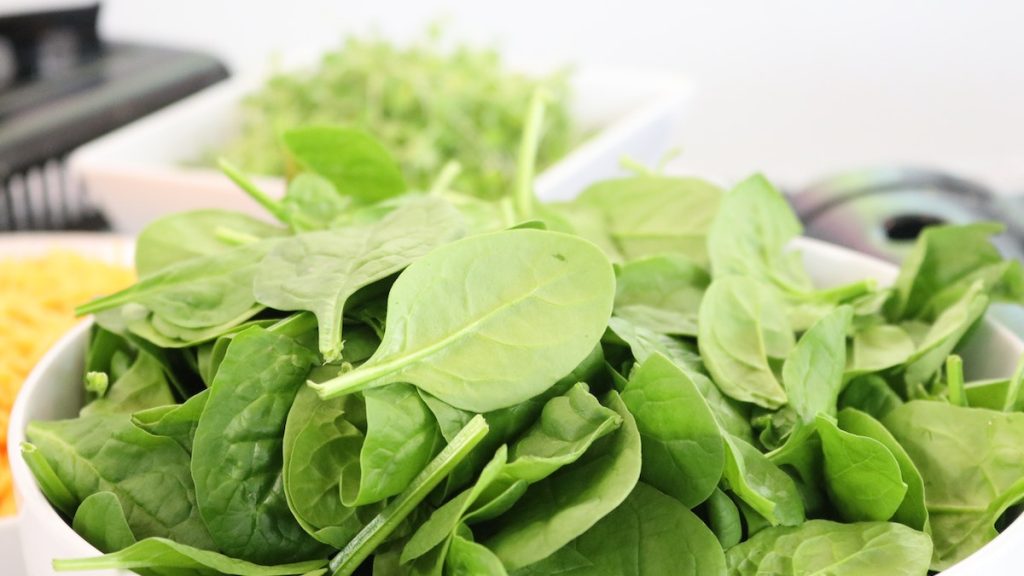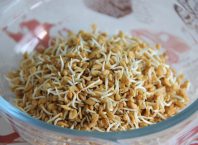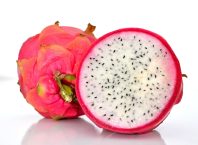Table of Contents
spinach is a leafy green vegetable that is packed with vitamins, minerals, and antioxidants. It’s an excellent source of iron, calcium, vitamin K, and folate, which are essential nutrients for dogs. Spinach is also low in calories and high in fiber, making it an ideal addition to your dog’s diet.
While spinach is generally safe for dogs to eat, there are some precautions to take when feeding it to your furry friend. In this article, we will discuss the benefits and potential risks of feeding spinach to dogs, as well as some tips on how to incorporate spinach into your dog’s diet.
What is Spinach?

Spinach is a leafy green vegetable that is commonly used in salads, smoothies, and cooked dishes. It is a rich source of vitamins and minerals such as vitamin A, vitamin C, iron, and calcium, and is known for its numerous health benefits. Spinach can be eaten raw or cooked and is a popular ingredient in many dishes around the world. In recent years, there has been growing interest in feeding spinach to dogs, as it offers many of the same health benefits for our canine companions. However, it’s important to feed spinach in moderation and with caution, as too much can lead to digestive issues and other health problems in dogs.
Nutrient Facts of Spinach
- Calories: 23 per 100 grams
- Carbohydrates: 3.6 grams per 100 grams
- Protein: 2.9 grams per 100 grams
- Fat: 0.4 grams per 100 grams
- Fiber: 2.2 grams per 100 grams
Spinach is also rich in vitamins and minerals, including
- Vitamin A
- Vitamin C
- Vitamin K
- Folate
- Iron
- Calcium
- Magnesium
- Potassium
Benefits of Spinach for Dogs

Rich in Nutrients
Spinach is a rich source of vitamins and minerals such as vitamin A, vitamin C, iron, and calcium. These nutrients can help support your dog’s overall health and well-being.
Promotes Healthy Digestion
Spinach can be a beneficial addition to a dog’s diet as it contains high amounts of fiber, which promotes healthy digestion. Fiber helps to keep the digestive tract moving smoothly and can prevent constipation and other digestive problems in dogs.
When dogs consume fiber, it passes through the stomach and small intestine largely undigested. It then reaches the large intestine, where it is fermented by the bacteria present in the gut. This fermentation process produces short-chain fatty acids, which provide energy and nutrients for the cells lining the colon.
Supports Strong Bones
Spinach is a good source of calcium, which is essential for strong bones and teeth in dogs. Calcium is a vital mineral that plays a crucial role in many bodily functions, including muscle and nerve function, blood clotting, and bone health.
When dogs consume calcium, it is absorbed into the bloodstream and transported to the bones and teeth, where it is deposited and used to maintain their strength and structure. Adequate calcium intake is particularly important during periods of growth, such as puppyhood, as well as during pregnancy and lactation.
Boosts Immune System
Spinach is rich in vitamin C, which is an important nutrient that can help boost the immune system in dogs. Vitamin C is a powerful antioxidant that helps protect cells from damage caused by free radicals, which are unstable molecules that can harm cells and contribute to inflammation and disease.
In addition to its antioxidant properties, vitamin C is also important for immune system function. It plays a key role in the production and function of white blood cells, which are responsible for fighting off infections and disease.
Aids in Blood Clotting
Spinach contains high amounts of vitamin K, which plays an important role in blood clotting. Blood clotting is a natural process that occurs when a blood vessel is damaged, and it is necessary to prevent excessive bleeding.
When dogs consume vitamin K, it helps produce clotting factors that are needed for blood to clot properly. Without enough vitamin K, dogs may experience excessive bleeding or bruising, even from minor injuries.
Helps Regulate Blood Pressure
Spinach contains high levels of potassium, a mineral that plays a key role in regulating blood pressure in dogs. Potassium works to counteract the effects of sodium in the body, which can lead to high blood pressure if consumed in excess.
When dogs consume potassium, it helps to relax blood vessel walls, improving blood flow and reducing strain on the heart. This, in turn, can help regulate blood pressure levels and reduce the risk of heart disease and stroke.
Anti-inflammatory Properties
Spinach contains a range of antioxidants and anti-inflammatory compounds that can help reduce inflammation and support overall health in dogs.
One of these compounds is lutein, a carotenoid that has been shown to have anti-inflammatory properties. Lutein works by reducing the production of pro-inflammatory molecules in the body, helping to lower levels of inflammation and oxidative stress.
Promotes Healthy Skin and Coat
Spinach contains a range of nutrients that support healthy skin and coats in dogs. One of these nutrients is vitamin A, which plays a key role in maintaining healthy skin and mucous membranes. Vitamin A helps to regulate skin cell production, ensuring that new skin cells are produced at a healthy rate and old skin cells are shed properly. This can help reduce the risk of skin conditions like dry, flaky skin or excessive shedding.
Spinach is also a good source of vitamin E, another nutrient that is important for healthy skin and coat. Vitamin E is a powerful antioxidant that helps protect skin cells from damage caused by free radicals. It also helps to promote healthy skin cell turnover, ensuring that new skin cells are produced and damaged cells are removed.
How to Feed Spinach to Your Dog?

Introduce spinach gradually
If your dog has never eaten spinach before, start by introducing it in small amounts and gradually increasing the serving size. This can help prevent digestive upset or other adverse reactions.
Cook spinach before feeding
Raw spinach can be difficult for dogs to digest and may contain harmful bacteria. It’s best to lightly steam or boil spinach before feeding it to your dog to make it easier to digest.
Serve spinach in moderation
While spinach is a healthy addition to a dog’s diet, it should be fed in moderation. Too much spinach can lead to excessive potassium intake, which can be harmful to dogs with kidney disease or other health conditions.
Avoid adding seasonings
When feeding spinach to your dog, it’s important to avoid adding seasonings or other ingredients that could be harmful or cause digestive upset. Plain, cooked spinach is the safest option.
Mix spinach with other foods
Spinach can be mixed with other foods like cooked rice or chicken to create a balanced, nutritious meal for your dog.
Check with your vet
If your dog has any health conditions or is taking medication, it’s important to check with your vet before adding spinach or any other new food to their diet.
Monitor for adverse reactions
While spinach is generally safe for dogs, some dogs may be allergic or sensitive to this food. Watch for signs of digestive upset, itching, or other adverse reactions, and discontinue feeding spinach if necessary.
Stick to fresh spinach
Canned or processed spinach may contain additives or preservatives that could be harmful to your dog. Stick to fresh, organic spinach whenever possible.
Other Vegetables That Are Safe for Dogs

Broccoli
Broccoli is high in fiber, vitamin C, and antioxidants, making it a great addition to your dog’s diet.
Cucumber
Cucumbers are low in calories and high in water content, making them a refreshing and hydrating snack for dogs.
Zucchini
Zucchini is a good source of fiber, vitamins, and minerals, and can help support your dog’s digestive health.
Celery
Celery is low in calories and high in fiber, making it a great snack option for dogs on a weight management plan.
Bell peppers
Bell peppers are a good source of vitamins and antioxidants and can help support your dog’s immune system.
Pumpkin
Pumpkin is a great source of fiber and can help regulate your dog’s digestion. It can also be helpful for dogs with diarrhea or constipation.
Asparagus
Asparagus is low in calories and high in vitamins and minerals, making it a healthy addition to your dog’s diet.
Side Effects of Spinach
Digestive upset
Some dogs may experience digestive upset when introduced to spinach or other leafy greens. This can include symptoms like diarrhea, vomiting, or gas.
Kidney stones
Spinach contains high levels of oxalates, which can contribute to the formation of kidney stones in some dogs. This is more of a concern for dogs with a history of urinary tract issues or kidney disease.
Excessive potassium intake
Spinach is high in potassium, which can be harmful to dogs with kidney disease or other health conditions that affect their potassium levels.
Allergic reactions
While rare, some dogs may be allergic to spinach or other leafy greens. Signs of an allergic reaction can include itching, hives, or swelling.
Interference with medication
Spinach contains high levels of vitamin K, which can interfere with certain medications like blood thinners. If your dog is on medication, it’s important to check with your vet before adding spinach or any new food to their diet.
Frequently Asked Questions About Spinach for Dogs
Q: Is spinach safe for dogs to eat?
A: Yes, spinach is generally safe for dogs to eat. However, it should be fed in moderation and with caution to avoid any potential health issues.
Q: Can spinach be harmful to dogs?
A: While spinach is generally safe for dogs, it can be harmful if fed in excess or if your dog has certain health conditions. It’s important to consult with your veterinarian before adding spinach to your dog’s diet.
Q: Can spinach cause diarrhea in dogs?
A: Yes, too much spinach can cause digestive issues such as diarrhea in dogs. It’s important to introduce spinach slowly into your dog’s diet and monitor their digestion.
Q: How much spinach can I feed my dog?
A: It’s best to feed spinach to your dog in moderation. A good rule of thumb is to give your dog no more than 10% of their diet in vegetables, including spinach.
Q: Can spinach be fed to dogs with kidney problems?
A: No, spinach should be avoided in dogs with kidney problems due to its high oxalate content, which can lead to urinary tract problems.
Conclusion
Spinach is a nutritious vegetable that offers various health benefits for dogs. It’s high in fiber, antioxidants, vitamins, and minerals, making it an ideal addition to your dog’s diet. However, it’s important to feed spinach in moderation and with caution, especially if your dog has certain health conditions. Always consult with your veterinarian before adding spinach or any new food to your dog’s diet to ensure that it’s safe and beneficial for them.















